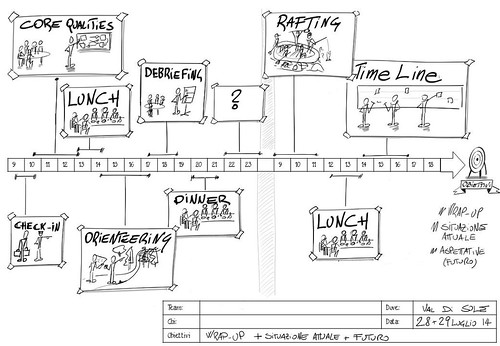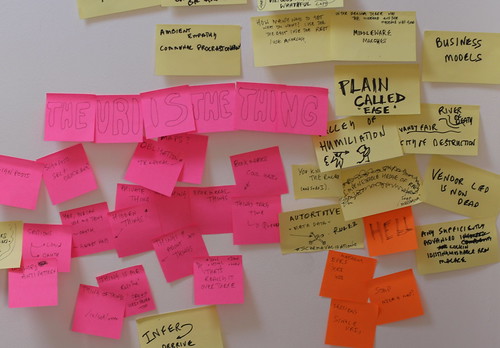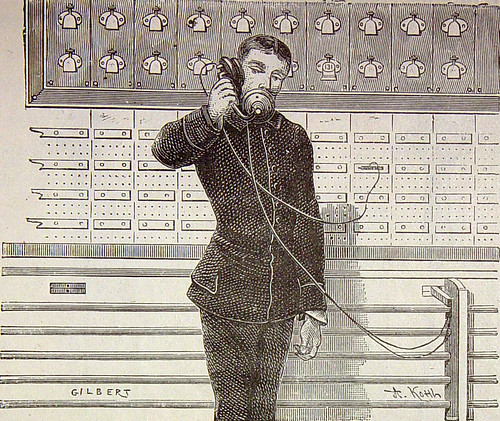Change Essentials: 10 Myths About Change Management

Change is hard. Especially when that change is in your workplace – or even more challenging, you’re the one tasked with leading such a change. Change management guides how business leaders prepare, equip and support people to successfully adopt the change(s) and drive the company to the desired outcomes.
To increase your chances of success we break down 10 myths about change management so you don’t fall victim to them.
1. You can control what happens during this change.
You can plan for the change. You can make predictions based on your knowledge of an organization. But once change is underway, things will happen that you didn’t foresee. With a well thought-out plan and clear roles and responsibilities, you will be able to navigate effectively through any change. But you won’t necessarily be able to control it.
2. You don’t need to be visible; you’ll just be a distraction.
People need to physically see you during a change. It will help them feel more stable and build confidence that you are in charge. If you are absent, they will feel like they are on a ship with no captain. Not only is this distracting, but it will also get in the way of their work.
3. You don’t need a formal plan because the change is not big enough.
In today’s organizations, departments and divisions are interdependent, and partnerships are common both inside and outside of a company. So there’s rarely a change that isn’t “big enough” to merit a plan. Creating a map of who is affected and how deeply will allow you to plan for the change appropriately.
4. You don’t need a formal plan because everyone knows what they need to do.
A good plan helps ensure that everyone understands their role as you navigate the change together. Without it, people will do what they think they need to do, not what you need them to do.
5. People won’t leave; the job market isn’t that good.
People will leave. They just won’t leave their job.
In a tough economy or an isolated location, many people will choose to stay in a company if their job hasn’t been eliminated. However, staying physically doesn’t mean they are staying emotionally or intellectually. In order for a business to survive and thrive, you must have the whole person working for you.
6. Resistance is bad.
Resistance is information. You are being given a gift. You are being told that there is a problem, which gives you the opportunity to partner with the resisting group or individual to solve it. If you announce a change and there is no resistance, I would be concerned.
7. Saying everything once is enough.
Any time you make an announcement, and especially during a business initiative that requires change, it is important to remember your audience is made up of individuals, all of whom listen and absorb information a little differently. Use the 10x communication rule. Vary the communication vehicles and repeat, repeat, repeat!!
8. No news is good news.
During a change, a lack of information will cause people to make up their own, or listen to information from others who have made up their own. People have a much higher need to know during a change and “no news” is not going to meet that need. If you can’t meet the need, someone else will. That’s how rumor mills survive and thrive.
9. Saying nothing is better than saying something that may change.
People would rather hear you say, “this is what is true today and it is possible that this will change.” Especially if you follow it up with “…and I will tell you immediately if that happens.” It will be even better when you actually do it.
10. People know you’re always going to do the right thing, they should trust you.
Don’t count on it. Most people generally overestimate their credibility in an organization. Be honest with yourself and ask yourself the following questions: What public actions have I taken recently that shows people that I “always do the right thing?” Do I have a network of individuals throughout the organization that can, and will, publicly support me and the changes I have announced? Your answers will dictate the plan of action you need to have in order to successfully carry out the changes. Don’t underestimate the importance honestly assessing your credibility and acting accordingly.
This post first appeared on Beth’s site.
Get the Skills You Need
Thousands of independent consultants, subject matter experts, project managers, and interim executives are ready to help address your biggest business opportunities.









